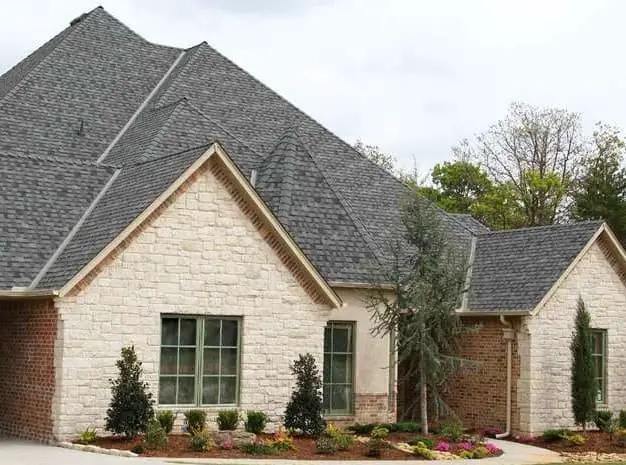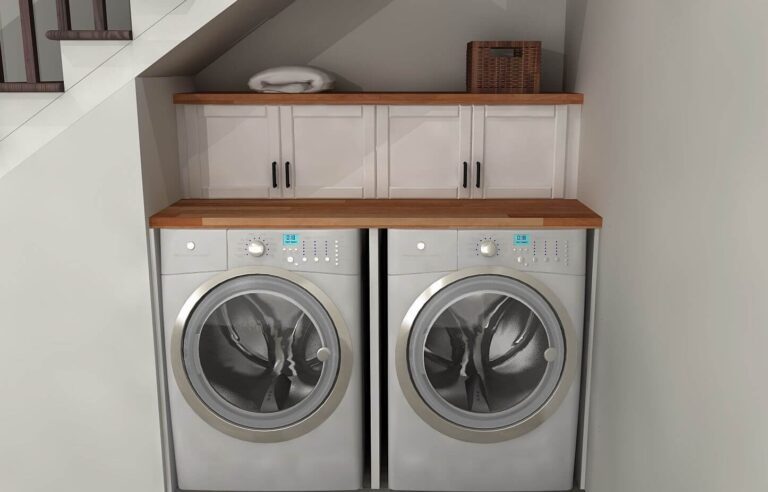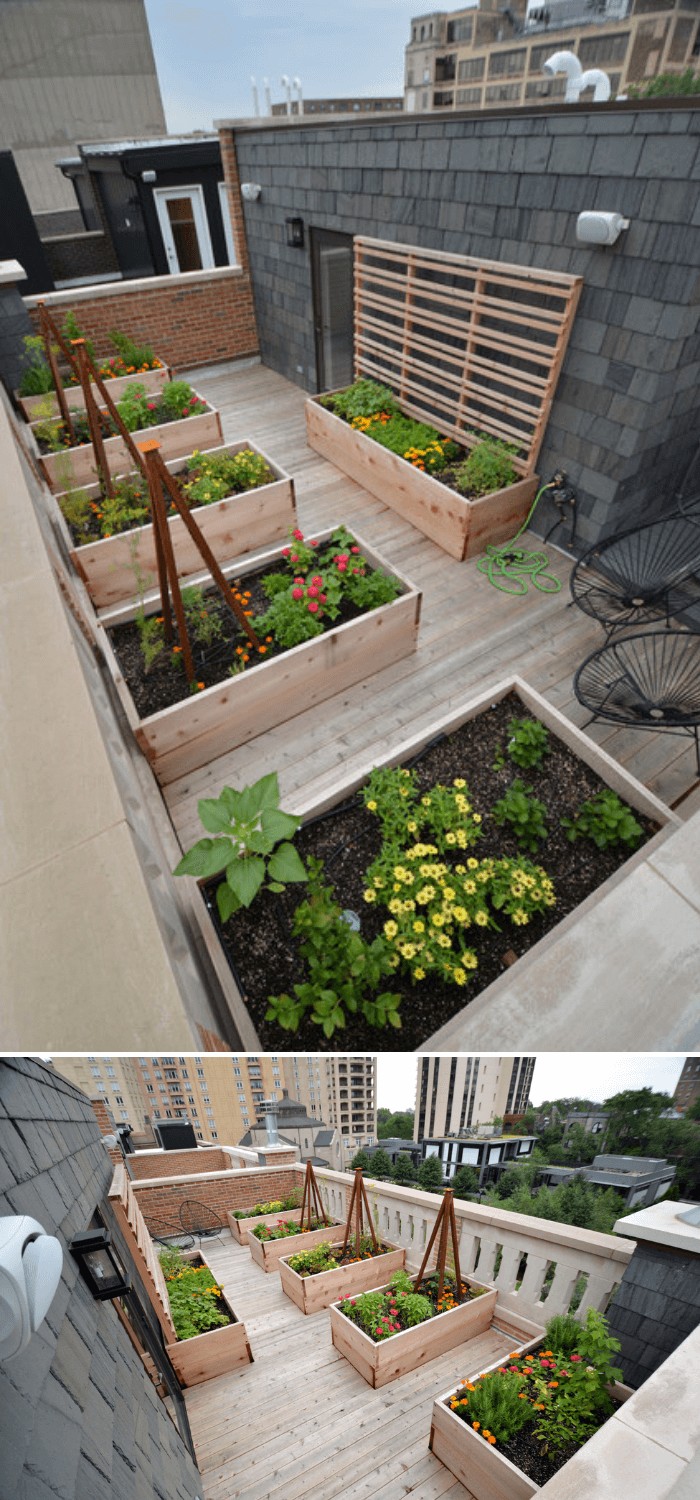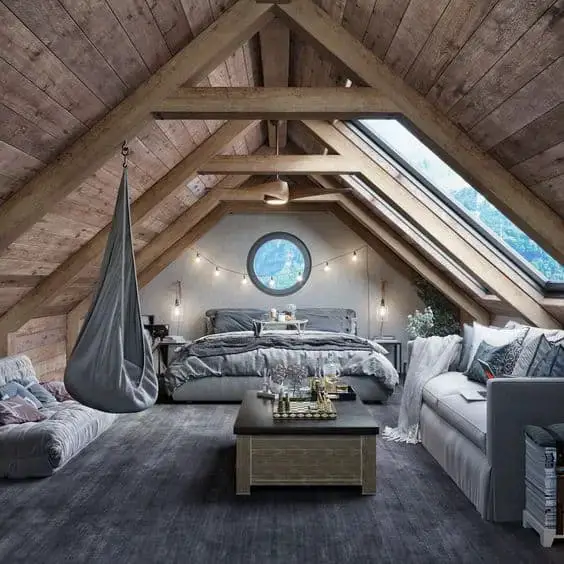13 Unique Patio Surface Alternatives For Your Outdoor Space
When designing an outdoor space, the patio surface is a crucial decision that shouldn’t be taken lightly. It not only affects the aesthetic appeal but also influences functionality, durability, and maintenance requirements. While traditional options like concrete, stone, or brick are popular choices, there’s a wealth of alternative patio surfaces waiting to be explored. These alternatives can offer unique looks, potentially lower costs, and easier installation processes.
In this article, we’ll delve into 13 unique patio surface alternatives, each with its own advantages and charm. From crushed granite to rubber pavers, these options present an opportunity to create a one-of-a-kind patio that perfectly suits your personal tastes and needs. Whether you’re planning a complete overhaul or just considering a surface refresh, this guide will provide plenty of inspiration.
The Concept of Patio Surface Alternatives
When it comes to designing a patio, homeowners and contractors alike are looking for innovative ways to move beyond the traditional concrete, stone, or brick options. This is where patio surface alternatives come in – materials, techniques, or even installation methods that offer a fresh spin on outdoor spaces.
Ranging from natural elements like crushed granite or pebbles to synthetic solutions such as rubber pavers or composite decking, these alternatives provide endless possibilities for creating unique and functional patios. The concept also extends to creative installation methods, including mosaics crafted with recycled glass or wooden decks built over existing concrete surfaces – think outside the box to transform your outdoor space.
Why Consider Patio Surface Alternatives?
While traditional materials for patios are popular, many homeowners consider non-traditional options that provide unique benefits. Alternative surfaces can bring a distinctive look and feel to an outdoor space, such as a patio made of recycled wine bottles offering a colorful and eco-friendly focal point. Additionally, some alternatives like crushed gravel or decomposed granite can be more budget-friendly than traditional materials, making them a practical choice for larger areas.
Installation is also often simplified with alternative materials, such as rubber pavers that are lightweight and have interlocking edges, allowing DIY enthusiasts to handle the job. Furthermore, environmentally conscious homeowners may opt for alternatives that promote sustainability, like recycled or upcycled materials, permeable surfaces to reduce runoff, or locally sourced materials.
Lastly, some alternative patio surfaces require less maintenance or offer greater durability than traditional options, such as composite decking that is resistant to rot and insects and needs minimal upkeep compared to wooden decks.
The Benefits of Patio Surface Alternatives
Beyond traditional patio surfaces, there lies a world of innovative alternatives waiting to be explored. By venturing off the beaten path, homeowners can unlock a multitude of benefits that go far beyond what’s typically expected. From enhanced aesthetics to increased durability and functionality, the advantages of opting for unique patio surface options are numerous and varied.
Cost-effectiveness
While traditional patio surfaces such as stone and brick can be costly, alternative options like crushed gravel, decomposed granite, and outdoor tiles offer a more affordable solution without compromising on functionality or visual appeal. Not only do these alternatives provide a similar aesthetic to their pricier counterparts, but they also often come with lower installation costs.
What’s more, many of these options are DIY-friendly, allowing homeowners to save even further by forgoing professional labor costs.
Aesthetic Appeal
When it comes to patios, the possibilities are endless. Alternative surfaces offer a vast array of colors, textures, and designs that can be tailored to suit any aesthetic or style. From sleek and modern concrete pavers perfect for minimalist schemes, to rustic wooden deck tiles evoking a cozy cabin feel, or even vibrant recycled glass tiles adding an artistic touch, there’s a surface to match your unique vision.
These innovative options empower homeowners to craft outdoor spaces that truly reflect their personality, allowing them to express themselves in a way that’s both functional and beautiful.
Durability and Maintenance Ease
While traditional patio surfaces have their merits, many alternative options offer impressive durability, low maintenance requirements, and a range of benefits for homeowners seeking a more sustainable lifestyle. For instance, rubber pavers are renowned for their resilience, long-lasting performance, and weather-resistance. These surfaces can be easily cleaned with a quick sweep or rinse under the garden hose, making them an attractive choice for busy homeowners.
Similarly, synthetic grass provides a lush, green surface year-round without the need for tedious mowing, watering, or fertilizing routines. Beyond these practical advantages, alternative patio surfaces can also play a vital role in environmental sustainability. Options like permeable pavers and recycled materials, for example, promote water conservation and reduce waste in landfills, making them an environmentally responsible choice.
13 Patio Surface Alternatives
Crushed Granite
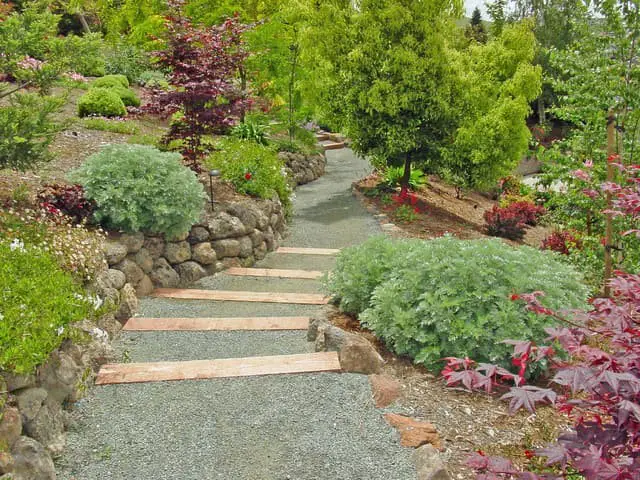
Crushed granite, with its unique blend of rustic charm and high-performance capabilities, can be an excellent material for creating a stunning patio surface. This natural product is composed of small, angular pieces of granite that have been crushed into a gravel-like consistency, offering a beautiful contrast between texture and color. One of the key advantages of using crushed granite for your patio is its exceptional aesthetic appeal.
Available in a range of colors, from classic gray and white to vibrant hues of red and blue, it can seamlessly blend with any landscape design. Additionally, as a loose-fill material, crushed granite allows for creative freedom, enabling you to shape it into custom designs and contours that perfectly complement your patio’s unique layout. Crushed granite also boasts impressive durability.
It withstands weather elements and heavy foot traffic with ease, making it an ideal choice for areas prone to heavy rainfall or flooding. Furthermore, its excellent drainage capabilities ensure that water flows freely, preventing accumulation and related issues. Perhaps the most attractive aspect of crushed granite is its budget-friendly nature.
Typically less expensive than concrete, brick, or stone pavers, it offers a cost-effective solution for large patios, making it an attractive option for homeowners looking to create a beautiful outdoor space without breaking the bank.
Outdoor Tiles

Outdoor tiles have become a popular choice for patio surfaces due to their unique combination of versatility, durability, and aesthetic appeal. Available in a wide range of materials, including porcelain, ceramic, slate, and even rubber, outdoor tiles offer a diverse selection of styles to suit any design preference. One of the key advantages of outdoor tiles is their ability to adapt to various designs, with an array of colors, patterns, and textures available.
This versatility allows homeowners to create a custom look that seamlessly integrates with their home’s exterior or landscape design. Furthermore, outdoor tiles are incredibly durable, able to withstand harsh weather conditions, including extreme temperatures, heavy rain, and sunlight, without compromising their appearance. Many types of outdoor tiles also feature a slip-resistant surface, making them an excellent choice for patios.
Moreover, the maintenance of outdoor tiles is relatively effortless, as most can be cleaned simply by sweeping or hosing them down. Additionally, some materials, such as porcelain and ceramic, are resistant to stains and mildew, further enhancing their appeal.
Pea Gravel

Pea gravel, with its rounded stones roughly the size of a pea, has become a popular choice for surfacing driveways, walkways, and patios. The material’s natural beauty is further enhanced by its diverse color palette, which includes neutral hues like brown and gray as well as more vibrant shades like red, blue, and rust. One of the primary advantages of using pea gravel for your patio is its aesthetic appeal.
Its rustic, natural look can complement a wide range of landscape styles, offering plenty of opportunities to match any desired aesthetic. Additionally, pea gravel’s varied colors and textures provide a unique canvas for creativity, allowing homeowners to tailor their outdoor space to suit their personal taste. Installation of pea gravel is also relatively straightforward compared to other patio materials like concrete or brick.
The process typically involves clearing and leveling the area, laying down landscaping fabric to prevent weed growth, and then spreading the pea gravel evenly. Another significant benefit of using pea gravel is its cost-effectiveness. It provides an affordable way to create a functional and attractive patio space without breaking the bank. Furthermore, pea gravel’s excellent drainage capabilities ensure that water can filter through the material, preventing puddles and water damage.
Pea gravel’s versatility is another major advantage. It can be used in various outdoor spaces, including patios, pathways, garden borders, and plant beds, providing a cohesive look throughout your landscape. The small, rounded stones are also comfortable underfoot, making it an ideal choice for patios where people may be walking barefoot or children are playing.
While pea gravel does have some limitations – it can shift under furniture or underfoot, which may not provide the same level of stability as other patio surfaces – using edging or a honeycomb stabilization grid beneath the gravel can help keep it contained and prevent shifting. Ultimately, pea gravel offers a unique combination of natural beauty, ease of installation, cost-effectiveness, drainage, versatility, and comfort that makes it an attractive option for many homeowners.
Artificial Grass

Artificial turf, also known as synthetic grass, is a man-made surface designed to mimic the appearance of natural grass. Originally used in sports arenas where natural grass was not feasible, it has since gained popularity for residential lawns and commercial applications. What sets artificial grass apart are its numerous benefits:Time- and Resource-Saving: Unlike natural grass, artificial turf eliminates the need for watering, mowing, and fertilizing, freeing up time and resources.
Year-Round Aesthetics: Artificial grass remains lush and green all year round, regardless of weather conditions. It won’t turn brown in winter or require reseeding in spring, providing a consistent landscape appearance. Durable and Cost-Effective: Artificial turf is designed to withstand heavy use and can last for several years, making it a cost-effective choice in the long run.
Adaptable Settings: Artificial grass thrives in settings where natural grass may struggle, including indoor areas, shaded spots, or high-traffic locations. Pet-Friendly and Easy Maintenance: Many types of artificial grass are designed to be pet-friendly, easy to clean, and resistant to muddy paw prints. Water Conservation: In areas prone to drought or water restrictions, artificial grass can help conserve this precious resource.
Deck Tiles

Deck tiles offer a versatile and practical solution for covering outdoor spaces. Their interlocking design allows for easy installation without the need for tools or adhesives, making them an ideal DIY project. The wide range of materials available, including wood, composite, stone, and plastic, provides numerous options to suit different styles and preferences.
One of the key benefits of deck tiles is their ease of use.
They can be applied to various surfaces, such as concrete, wood, and even grass, making them suitable for creating cozy deck areas, revitalizing balconies, or adding a touch of elegance to poolside spaces. Additionally, deck tiles come in a variety of colors, designs, and finishes, ensuring that they will complement any outdoor decor.
Deck tiles are designed to withstand harsh weather conditions, UV rays, and pests, making them a durable option for outdoor use.
Composite tiles, in particular, are resistant to rot and warping, further increasing their lifespan. With proper maintenance, deck tiles can remain looking great for years to come.
In terms of upkeep, most deck tiles can be easily cleaned with a simple hose down, and damaged individual tiles can be replaced without having to redo the entire area.
This practicality is enhanced by the fact that many deck tiles feature raised designs that improve drainage, preventing water from pooling on your deck.
Finally, deck tiles offer the flexibility of being portable. If you’re renting or want to redesign your outdoor space in the future, they can be easily removed and reinstalled at a new location, providing a hassle-free solution for your evolving needs.
Rubber Pavers
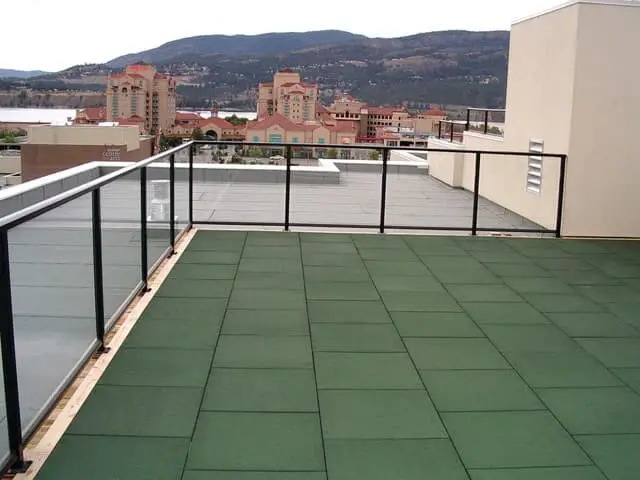
Rubber pavers offer a unique combination of benefits that make them an attractive option for outdoor spaces. These eco-friendly pavers are made from recycled rubber, often sourced from used car tires, and designed to mimic the look of traditional stone or concrete pavers. Their versatility has led to their widespread use in patios, walkways, driveways, and playgrounds.
The advantages of choosing rubber pavers include: durability against weather conditions and heavy use, shock-absorbing properties that reduce the risk of injury, a reduced environmental footprint due to their recycled material, ease of installation with lightweight and interlocking designs, comfort for pedestrians with a softer surface, low maintenance requirements with resistance to mold and mildew, and noise reduction capabilities in high-traffic areas.
With these benefits, rubber pavers have established themselves as a practical and sustainable option for outdoor spaces.
Concrete Pavers
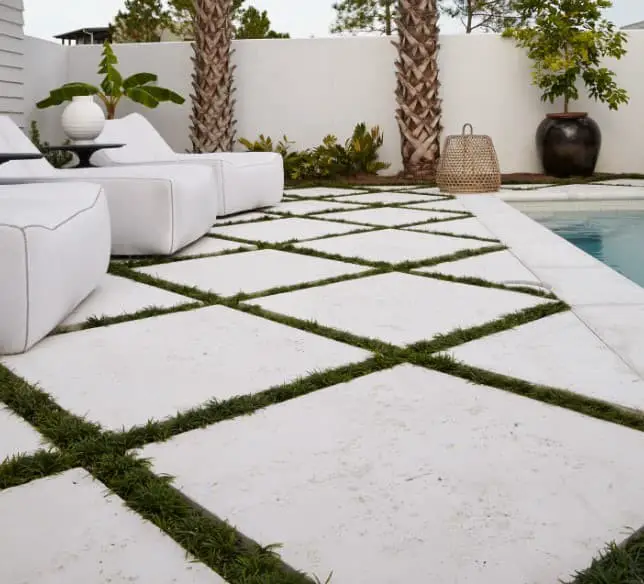
Concrete pavers offer an unparalleled level of versatility when it comes to outdoor flooring options. These individual pieces of concrete are designed to interlock and form a durable surface that can withstand heavy loads and traffic, making them an ideal choice for driveways, patios, walkways, and pool decks.
The benefits of choosing concrete pavers are numerous and include: the ability to customize with a wide range of colors, shapes, sizes, and textures; exceptional durability and strength that can handle vehicle traffic without cracking or damage; resistance to various weather conditions including heat, cold, and rain; low maintenance requirements that only necessitate occasional rinsing to remove dirt or debris; and cost-effectiveness due to their long-lasting nature.
Additionally, the textured surface of concrete pavers provides a non-slip surface, making them a safe choice for areas like pool decks and walkways. Perhaps most importantly, a well-designed and installed paver driveway, patio, or walkway can significantly increase the curb appeal and overall value of a property.
Flagstone

Flagstone, a type of natural stone, is renowned for its large, flat pieces that are often used to create stunning outdoor spaces. While the term ‘flagstone’ refers specifically to the cut of the stone rather than the material itself, it can encompass a range of materials including slate, limestone, and sandstone. When choosing flagstone for your project, you’ll appreciate the numerous benefits it offers.
For starters, each piece of flagstone is one-of-a-kind, boasting its own distinct color, texture, and shape. This uniqueness lends itself to creating a truly bespoke outdoor space that adds character and charm to any area. Additionally, flagstone is incredibly durable and can withstand the test of time with proper care. Its resistance to chips and scratches makes it an excellent choice for high-traffic areas or those prone to weathering.
A further benefit of flagstone is its naturally non-slip surface, making it a secure option for spaces that may become wet, such as pool decks or garden paths. Once installed, flagstone requires minimal maintenance – simply clean it with water and mild detergent. And finally, the installation of a flagstone patio or walkway can even increase your property’s value due to its natural beauty and durability.
Brick

Brick, a timeless building material, has been a staple for centuries. Its versatility and durability make it an ideal choice for outdoor spaces like walkways, patios, and driveways. Beyond its functional benefits, brick offers a unique aesthetic that can elevate the curb appeal of any property.
The advantages of opting for brick are numerous:
Timeless Elegance: Brick’s classic look never goes out of style, effortlessly complementing various architectural styles.
Enduring Durability: Brick is built to last, withstanding heavy foot traffic and harsh weather conditions. With proper care, bricks can retain their charm for decades.
Environmental Appeal: As a natural product made from clay, brick is an eco-friendly option. Moreover, old bricks can be recycled or repurposed, reducing waste and promoting sustainability.
Low-Maintenance Charm: Brick requires minimal upkeep – simply clean it with water, and individual bricks can be replaced if needed.
Customizable Beauty: Bricks come in a range of colors and can be arranged in various patterns to create a one-of-a-kind look that reflects your personal style.
Property Value Boost: A well-maintained brick driveway or patio can significantly increase the value and curb appeal of a property, making it an attractive investment for homeowners.
Wood Chips

Wood chips are a byproduct of logging, tree pruning, or other wood processing activities, resulting in small pieces of wood that have been chipped or shredded from larger pieces. The size and type of wood chips can vary greatly depending on the source and processing method. Wood chips serve multiple purposes, with one primary use being as a form of mulch in landscaping.
When spread around trees, shrubs, and flowers, they suppress weeds, retain soil moisture, and enhance soil fertility over time as they decompose. Furthermore, wood chips are also valued for their shock-absorbing properties, making them an ideal material for playgrounds, where they can reduce the impact of falls.
Recycled Rubber Mulch

Recycled rubber mulch is a versatile product made from reclaimed vehicle tires, transformed into small particles that mimic the appearance of traditional wood chip mulch. Its versatility lies in its ability to be utilized in various settings, including landscaping and playgrounds, where it provides exceptional weed suppression and durability due to its non-decomposable nature. Additionally, recycled rubber mulch excels at shock absorption, making it a top choice for playground surfaces.
The product is available in a range of colors, allowing designers greater creative freedom when crafting unique landscapes. While it offers several benefits, recycled rubber mulch does not contribute to soil fertility like organic options, and concerns regarding chemical leaching, particularly in vegetable gardens or edible plantings, have been raised.
Bark Mulch

Bark mulch, made from the shredded bark of various trees, serves multiple purposes in gardens and landscapes. Its primary functions include suppressing weeds, retaining soil moisture, regulating temperature, and enhancing visual appeal. This type of mulch is highly regarded for its ability to prevent weed growth and help soil retain its natural moisture levels. With proper maintenance, it can last between seven to ten years.
Nonetheless, it’s crucial to avoid over-mulching, as this can lead to nutrient deficiencies in the soil.
Cobblestone

Cobblestones are small, rounded stones that have been used for centuries as a natural building material. Typically measuring between 2.5 and 10 inches in diameter, these stones can be made from a variety of materials, including granite, limestone, and basalt. One of the unique characteristics of cobblestone is its exceptional durability and resistance to weathering, making it an ideal choice for paving streets, driveways, and walkways.
This natural material has been prized for its timeless charm and ability to evoke a sense of nostalgia. While cobblestones require little maintenance due to their rough surface providing good traction, the process of installing them can be labor-intensive as each stone must be placed individually. Despite this, many homeowners and designers find the unique aesthetic appeal and long-lasting quality of cobblestone to be well worth the effort.
Tips for Choosing the Right Patio Surface Alternative
When planning a patio, it’s crucial to consider several factors beyond just the aesthetic appeal. One essential consideration is budget – different materials can have significantly varying costs, from the initial material cost to installation and long-term maintenance expenses. Additionally, think about the level of upkeep each material requires, as some need regular sealing or staining (like wood decks), while others demand less attention (such as stone patios).
Next, assess the durability of each material in relation to your local climate and weather conditions, as well as the expected foot traffic on your patio. Finally, ensure that the chosen material harmonizes with your home’s style – a modern abode might be best paired with sleek concrete or stone, while a traditional home would complement nicely with brick.
Lastly, don’t forget to keep functionality in mind; if you plan to place heavy furniture or a grill on your patio, you’ll need a sturdy surface like concrete or stone.
Factors to Consider When Choosing a Patio Surface Alternative
When selecting a patio material, it’s essential to consider three crucial factors: climate, use, and location. Climate plays a significant role, as certain materials are more suitable for specific conditions. For instance, wood may not be the best choice in areas prone to excessive moisture or frequent frost heave, while brick can be challenging to maintain in climates with harsh weather fluctuations. The intended use of your patio is another vital consideration.
If you plan to host dinner parties and prioritize ease of cleaning, a flat and smooth material like concrete might be the way to go. On the other hand, if your patio is designed for lounging and barefoot relaxation, a softer material like wood or stone could provide a more comfortable experience. Lastly, the location of your patio can significantly impact your material choice.
A shaded area may require a non-slip surface to prevent accidents, while an area with direct sunlight might necessitate a material that can withstand heat. Some materials, such as pavers, are designed to accommodate varying conditions. Ultimately, the installation process is also crucial to consider. If you’re planning a DIY project, take into account your skill level and the complexity of the installation.
Some materials may require specialized tools or expertise, which could impact the overall cost and timeline of your project.
How to Match the Patio Surface with the Overall Design of Your Outdoor Space
When designing an outdoor living space, it’s essential to consider how the patio surface will harmonize with the existing architecture and landscape. To achieve a cohesive look, start by selecting a color that complements the exterior of your home and any adjacent structures, such as a shed or gazebo. This consideration is particularly important when dealing with a distinct architectural style, like Spanish- or Mediterranean-inspired designs.
In these cases, choosing a terracotta tile patio can create a visually appealing connection between indoors and outdoors. Similarly, natural stone patios can blend seamlessly with rocky, hillside gardens, while modern, minimalist yards might benefit from sleek concrete patios. Additionally, the size and shape of your patio should be in proportion to the surrounding outdoor space.
A large, open yard can comfortably accommodate a spacious patio area, whereas a small garden may require a more intimate, compact design.
Conclusion
When it comes to selecting the ideal patio surface, the possibilities can be overwhelming. However, by considering factors such as budget, climate, location, intended use, and maintenance requirements, homeowners can make an informed decision that enhances both the functionality and aesthetic appeal of their outdoor space. Whether opting for a rustic cobblestone or wood chip arrangement, or a modern option like recycled rubber mulch, each material offers unique benefits.
Crucially, the chosen surface should not only withstand the test of time but also complement the overall style and ambiance of the home and surrounding area. With so many options available, it’s essential to explore these alternatives and find the perfect fit for your needs, transforming your outdoor space into a stunning retreat that you’ll cherish for years to come.
Related Posts
When it comes to choosing the right equipment for your farm business, several factors come into play. First and foremost, consider the type of crops you’re planning to grow or livestock you’ll be raising. This will help determine the specific machinery you need to ensure a smooth and efficient operation. Additionally, think about the size of your farm, as this will impact the scale of equipment required.
Furthermore, don’t forget to factor in any local regulations or zoning restrictions that may affect your choices. By carefully weighing these considerations, you’ll be well on your way to selecting the ideal equipment for your unique farming needs.


